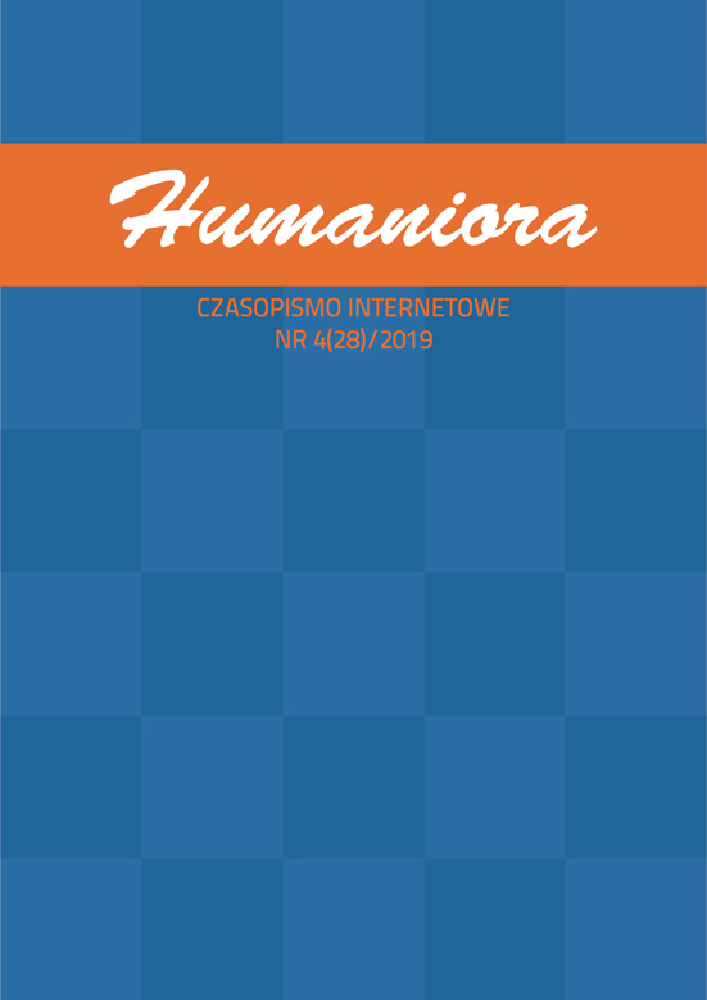Abstrakt
The article reconstructs the concept of body in the philosophy of John Locke; body is understood in a twofold sense: as a part of nature and as belonging to my own unique experience. Several threads interweave in the way Locke understands body: the historical method presenting the shaping of empirical concepts within human experience, the epistemological pessimism concerning the knowledge of real essences, and philosophical explication of religious truths which allows Locke to give his own interpretation of resurrection: the resurrection of bodies but not of souls, if they are to be understood as a substance independent from body. The analyses carried out on various planes: psychological description of human experience, natural philosophy, metaphysics and the philosophy of religion reveal the extent to which Locke’s philosophy is rooted in Cartesianism and shows how his empiricism overcomes it.
Bibliografia
Almond P., Heaven and Hell in Enightenment England, Cambridge University Press, Cambridge 1994.
Anstey P., John Locke and Natural Philosophy, Oxford University Press, Oxford 2011.
Descartes R., Medytacje o pierwszej filozofii, tłum. M. i K. Ajdukiewiczowie, PWN, Warszawa 1958.
Descartes R., Zasady filozofii, tłum. I. Dąbska, PWN, Warszawa 1960.
Grzeliński A., Doświadczenie i rozum. Empiryzm Johna Locke’a, Wydawnictwo Naukowe UMK, Toruń 2019.
Grzeliński A., Dwa wczesne eseje medyczne Johna Locke’a – Morbus i Anatomia, „Studia z Historii Filozofii” 1/2016.
Hill J., The Cartesian Element in Locke’s Anti-Cartesian Conception of Body, w: Ph. Hamou, M. Pécharman (red.), Locke and Cartesian Philosophy, Oxford University Press, Oxford 2018.
Knight H., Hunter M., Robert Boyle’s Memoirs for the Natural History of Human Blood (1684): Print, Manuscript and the Impact of Baconianism in Seventeenth-Century Medical Science, „Medical History” 51(2)/2007.
Kopania J., Descartes i problem nieśmiertelności duszy ludzkiej, „Roczniki Filozoficzne” t. LXII, 4/2014.
Kucharski D., Racjonalność religii w ujęciu Henry’ego More’a (w druku).
Locke J., A Paraphrase and Notes on St. Paul’s First Epistle to Corinthians, w: idem, Works, t. 7, London 1824.
Locke J., Anatomia, tłum. A. Grzeliński, „Studia z Historii Filozofii” 1/2016.
Locke J., Drafts for the ‘Essay Concerning Human Understanding’, and Other Philosophical Writings, t. 1, ed. P.H. Nidditch, G.A.J. Rogers, Clarendon Press, Oxford 1990.
Locke J., Resurrectio et quae secuuntur, w: idem, Writings on Religion, ed. V. Nuovo, Clarendon Press, Oxford 2002.
Locke J., Rozważania dotyczące rozumu ludzkiego, t. 1, tłum. B. Gawecki, PWN, Warszawa 1955.
McLaughlin P., Force, Determination, and Impact, w: S. Gaukroger, J. Schuster, J. Sutton (red.), Descartes Natural Philosophy, Routledge, London – New York 2000.
Milton J.R., Locke and Descartes. The Initial Exposure, 1658–1671, w: Ph. Hamou, M. Pécharman (red.), Locke and Cartesian Philosophy, Oxford University Press, Oxford 2018.
Szwed A., Fideizm kalwina i bunt angielskich racjonalistów, Wydawnictwo Marek Derewiecki, Kęty 2016.
Voltaire, Listy o Anglikach albo listy filozoficzne, tłum. J. Rogoziński, PIW, Warszawa 1953.
Walmsley J.C., John Locke’s Natural Philosophy (1632–1671), Ph.D. Thesis, https://core.ac.uk/download/pdf/74250.pdf [12.10.2019].
Licencja
Czasopismo oraz wszystkie zamieszczone w nim materiały są powszechnie dostępne i mogą być wykorzystywane do celów naukowych, edukacyjnych, poznawczych i niekomercyjnych bez konieczności uzyskiwania każdorazowej zgody autorów i redakcji. Nadesłanie artykułu do publikacji traktowane jest jako zgoda autora na udostępnienie swojej pracy i informacji w niej zawartych do powyżej wymienionych celów. W takich przypadkach należy jedynie wskazać źródło, z którego zaczerpnięte zostały informacje. Pobieranie opłat za dostęp do materiałów zawartych w czasopiśmie lub ograniczanie do niego dostępu jest zabronione.
Przesyłane do redakcji teksty muszą stanowić oryginalne prace, uprzednio nigdzie niepublikowane ani nie przedkładane innym redakcjom lub wydawcom. Autorzy nadsyłanych artykułów ponoszą odpowiedzialność za uzyskanie zezwoleń na publikowanie materiałów, do których prawa autorskie są w posiadaniu osób trzecich. Publikacja materiałów chronionych prawem autorskim jest możliwa pod warunkiem uprzedniego dostarczenia przez autora do redakcji pisemnej zgody właściciela praw autorskich.





